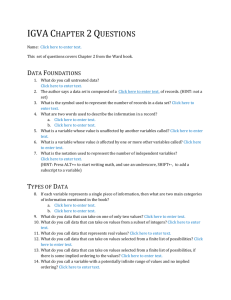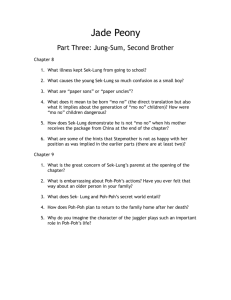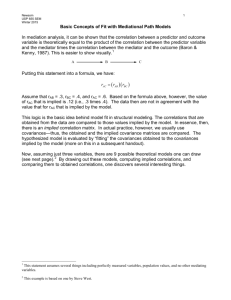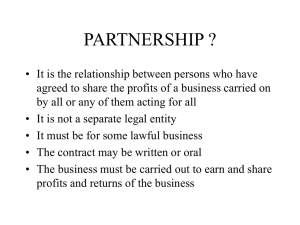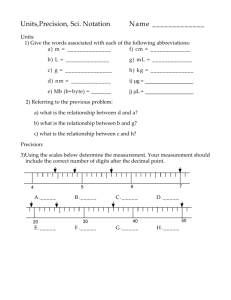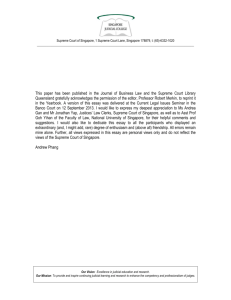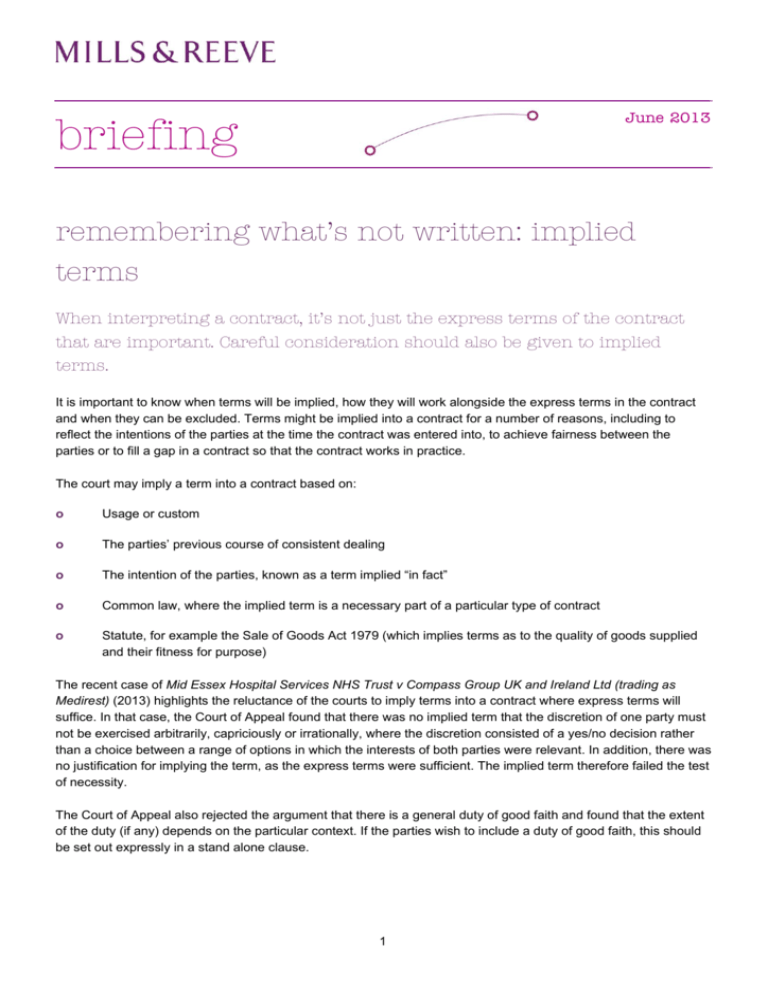
briefing
June 2013
remembering what’s not written: implied
terms
When interpreting a contract, it’s not just the express terms of the contract
that are important. Careful consideration should also be given to implied
terms.
It is important to know when terms will be implied, how they will work alongside the express terms in the contract
and when they can be excluded. Terms might be implied into a contract for a number of reasons, including to
reflect the intentions of the parties at the time the contract was entered into, to achieve fairness between the
parties or to fill a gap in a contract so that the contract works in practice.
The court may imply a term into a contract based on:
o
Usage or custom
o
The parties’ previous course of consistent dealing
o
The intention of the parties, known as a term implied “in fact”
o
Common law, where the implied term is a necessary part of a particular type of contract
o
Statute, for example the Sale of Goods Act 1979 (which implies terms as to the quality of goods supplied
and their fitness for purpose)
The recent case of Mid Essex Hospital Services NHS Trust v Compass Group UK and Ireland Ltd (trading as
Medirest) (2013) highlights the reluctance of the courts to imply terms into a contract where express terms will
suffice. In that case, the Court of Appeal found that there was no implied term that the discretion of one party must
not be exercised arbitrarily, capriciously or irrationally, where the discretion consisted of a yes/no decision rather
than a choice between a range of options in which the interests of both parties were relevant. In addition, there was
no justification for implying the term, as the express terms were sufficient. The implied term therefore failed the test
of necessity.
The Court of Appeal also rejected the argument that there is a general duty of good faith and found that the extent
of the duty (if any) depends on the particular context. If the parties wish to include a duty of good faith, this should
be set out expressly in a stand alone clause.
1
Some practical tips:
o
When drafting contracts, ensure that all the terms you wish to be included are expressly set out. Parties
will otherwise be reliant on the contractual interpretation of the courts – which can be costly and
unpredictable!
o
Given that there is no general duty of good faith, beware including clauses such as “the parties will act in
good faith when performing their services under this contract.” Although clauses of this type seem fairly
innocuous, they can have far reaching and unanticipated consequences. For example, a “good faith”
clause may limit a party’s ability to terminate a contract: the party will have to consider not only whether it
has the contractual right to terminate but also whether it is acting in good faith in exercising that right.
o
Consider trying to exclude implied terms. Implied terms can be expressly excluded by the following types
of provisions:
o
Entire agreement clauses: to exclude implied terms effectively, the entire agreement clause
should use clear, express words to this effect. A general exclusion in an entire agreement clause
will not necessarily exclude terms required for business efficacy, or terms required to make the
express terms work, as they are seen to form part of the agreement itself.
o
Specific exclusions: if you wish to exclude particular implied terms (assuming any relevant
statute allows parties to “contract out” in this way), use clear wording and specific language, such
as the following wording often found in warranty or limitation of liability provisions:
“Except as set out in this contract, all warranties, conditions, terms and undertakings, express or
implied, whether by statute, common law, custom, trade usage, course of dealings or otherwise
(including without limitation as to quality, performance or fitness or suitability for purpose) in
respect of any products or services to be provided by the Supplier under this contract are excluded
to the fullest extent permitted by law.”
o
When excluding implied terms, always remember the Unfair Contract Terms Act 1977 (UCTA). Under
UCTA the exclusion of certain implied terms in consumer contracts will not be enforceable and exclusions
in business-to-business contracts will only be enforceable if the exclusion is reasonable. In a business-tobusiness contract, the exclusion of the implied term that goods will be of satisfactory quality may be
enforceable where the contract includes an express warranty that the goods will comply with their
specification. However, an exclusion that leaves a purchaser with no effective remedy is far less likely to
be found by a court to be reasonable.
Greg Gibson
Partner
for Mills & Reeve LLP
+44(0)1603 693375
greg.gibson@mills-reeve.com
www.mills-reeve.com T +44(0)844 561 0011
Mills & Reeve LLP is a limited liability partnership authorised and regulated by the Solicitors Regulation Authority and registered in England and Wales with registered number OC326165. Its
registered office is at Fountain House, 130 Fenchurch Street, London, EC3M 5DJ, which is the London office of Mills & Reeve LLP. A list of members may be inspected at any of the LLP's
offices. The term "partner" is used to refer to a member of Mills & Reeve LLP.
The contents of this document are copyright © Mills & Reeve LLP. All rights reserved. This document contains general advice and comments only and therefore specific legal advice should be
taken before reliance is placed upon it in any particular circumstances. Where hyperlinks are provided to third party websites, Mills & Reeve LLP is not responsible for the content of such sites.
2


